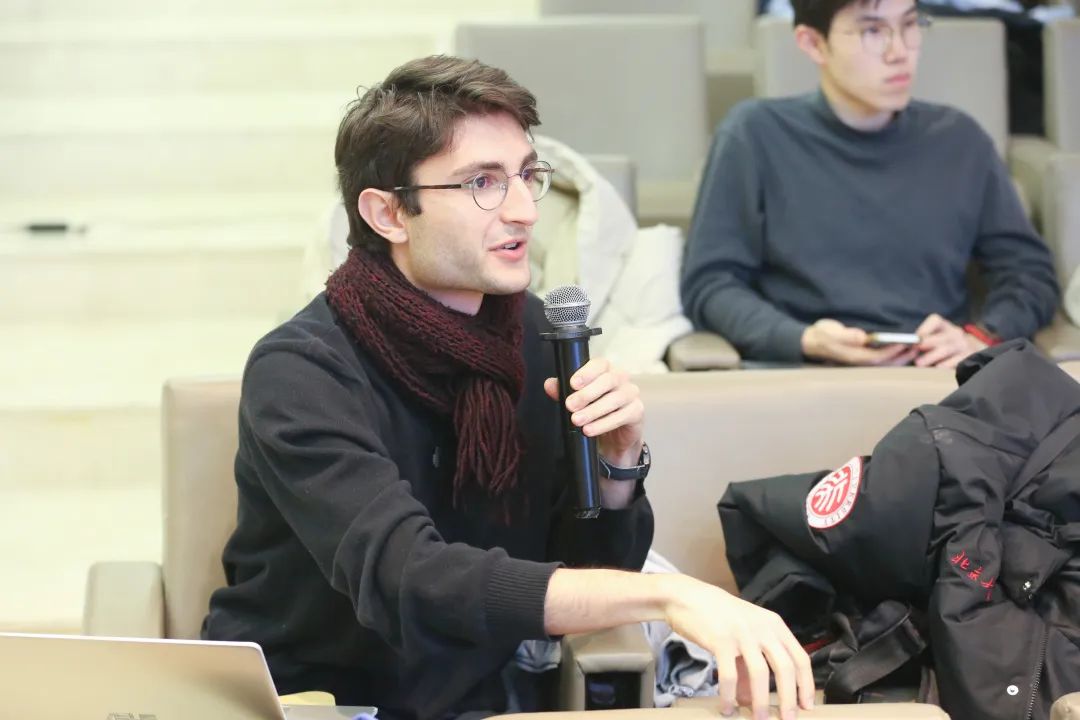On December 6, Zhou Xueguang, Stanford professor of sociology and visiting professor of the Institute of Humanities and Social Sciences of Peking University, delivered a lecture titled “The Logic of Governance in China: An Organizational Approach” at Yenching Academy. This lecture, the fourth in YCA’s Topic in China Studies Lecture Series this semester, was chaired by Professor Fan Shiming, Associate Dean of Yenching Academy.
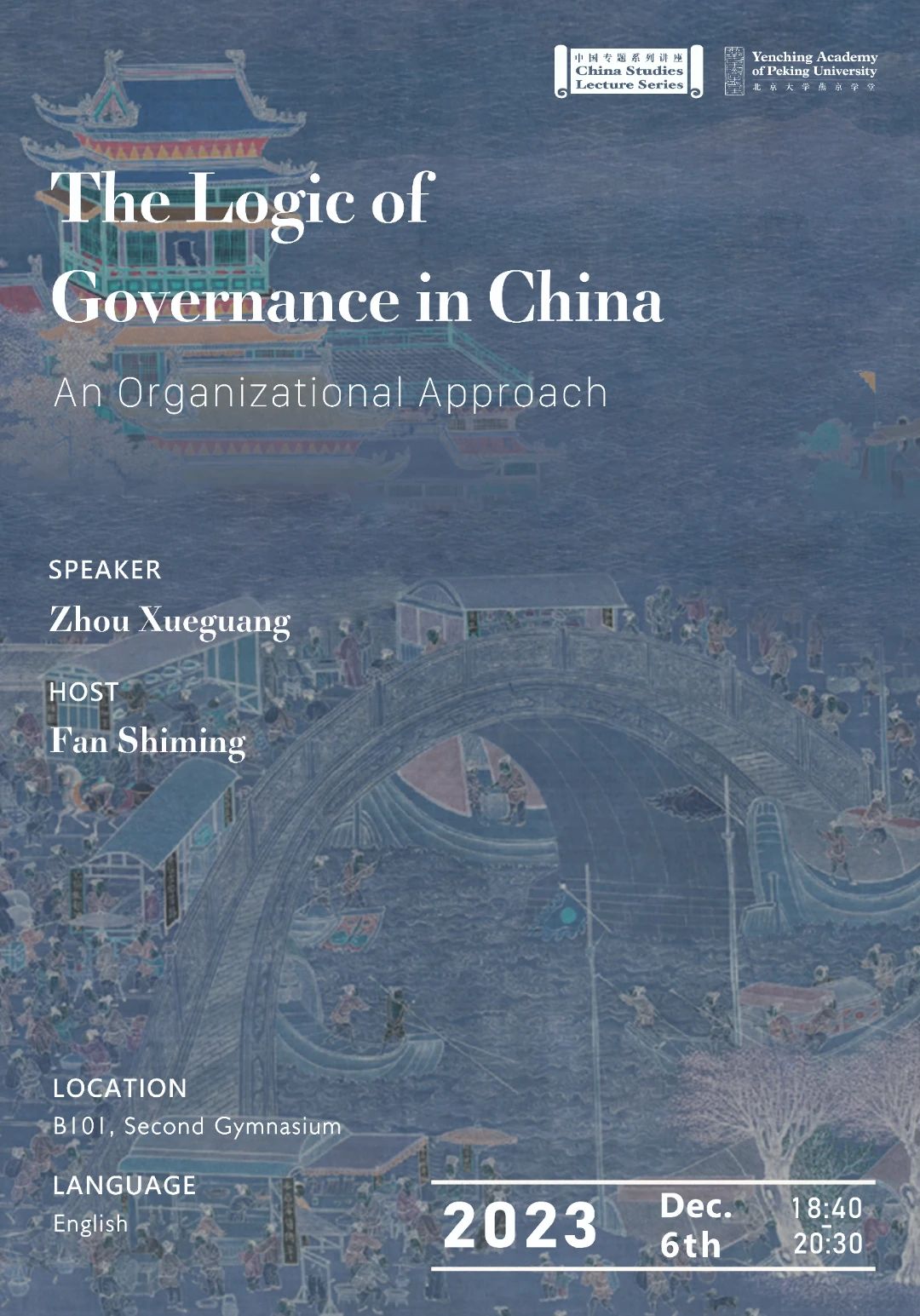
Notes on the Interview
Professor Zhou Xuegang began by discussing ways to resolve the contradiction between an authoritative system and effective governance. He noted that existing theoretical frameworks argue that the contradiction is an endogenous problem without a definitive solution. Resolving problems stemming from decentralization within a centralized political system is a trial-and-error process. Over the same process, we delegate powers to relieve problems caused by centralization, navigating through highs and lows. He added that readjustments and improvements can be made by implementing enhanced information feedback mechanisms.
Prof. Zhou described the shocks modern information technology has brought to China’s state governance. Traditionally, information flowed upwards from lower-level governments to the higher levels, reaching the central government. However, problems in principal-agent relationships resulted in information asymmetry, where decision-makers struggled to obtain accurate information from local levels. Modern information technology has effectively solved problems such as information distortion and delay through rapid, large-scale data collection.
However, information technology presents potential problems and dangers. New problems emerge when collecting, processing, and interpreting vast amounts of data. Besides, when information reaches centralized entities, such as the central government, a provincial government, or a data center, those who need information, like grassroots-level cadres, may be deprived of essential information. Also, excess information can breed overconfidence, increasing the likelihood of uninformed decisions or potentially triggering a larger crisis. Professor Zhou expressed particular concerns about risks associated with big data.
Prof. Zhou shared his deep love for his career and research, considering them integral parts of his life and way of living. He loves engaging in discussions on Weibo, writing books, and delving into research. Encouraging our Scholars, Prof. Zhou emphasized the value of exploring new endeavors and finding one’s true passion through trial and error. He stressed the importance of courage in making mistakes and reckoned that everyone should pursue their interests and follow their hearts in choosing what truly captivates them.
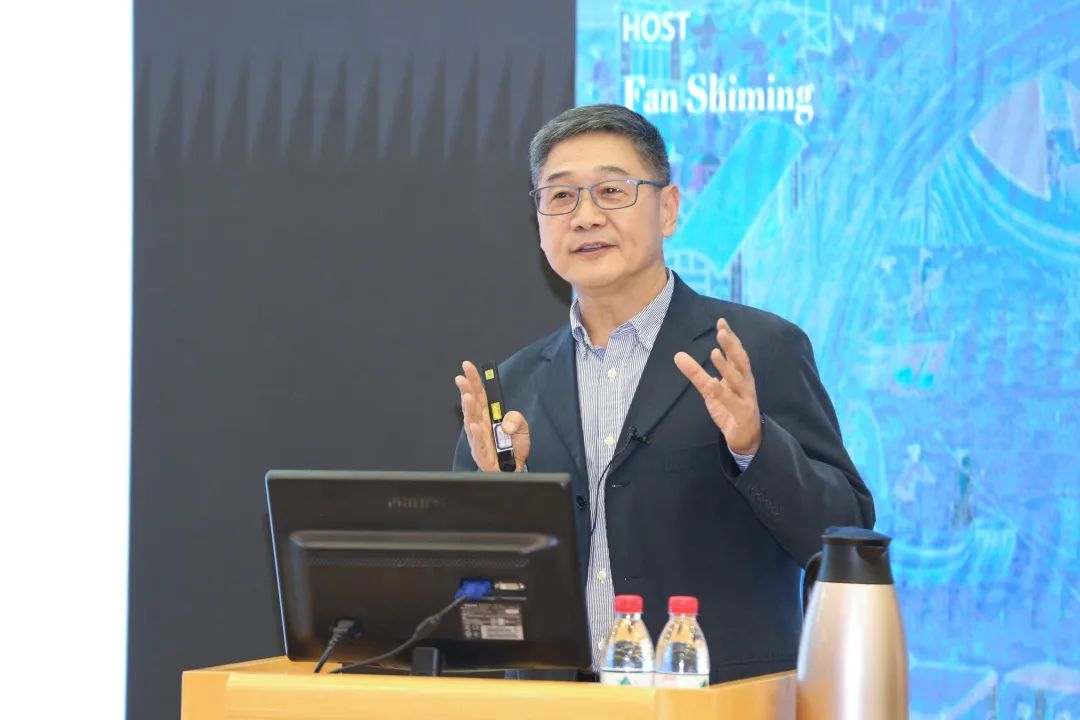
Highlights of the Lecture
Professor Zhou commenced his lecture by posing two fundamental questions: What is the logic of governance in China? What are the problems and challenges in day-to-day governance?
Professor Zhou initially illustrated some phenomena and contradictions observed in Chinese society. Despite experiencing rapid economic growth and social changes led and mobilized by the central and local governments, the tension between centralization and power delegation has intensified. He delved into the strategies the central and local governments adopt to address this tension, highlighting the need to find a balance between policy effectiveness and local characteristics across China’s vast territory.
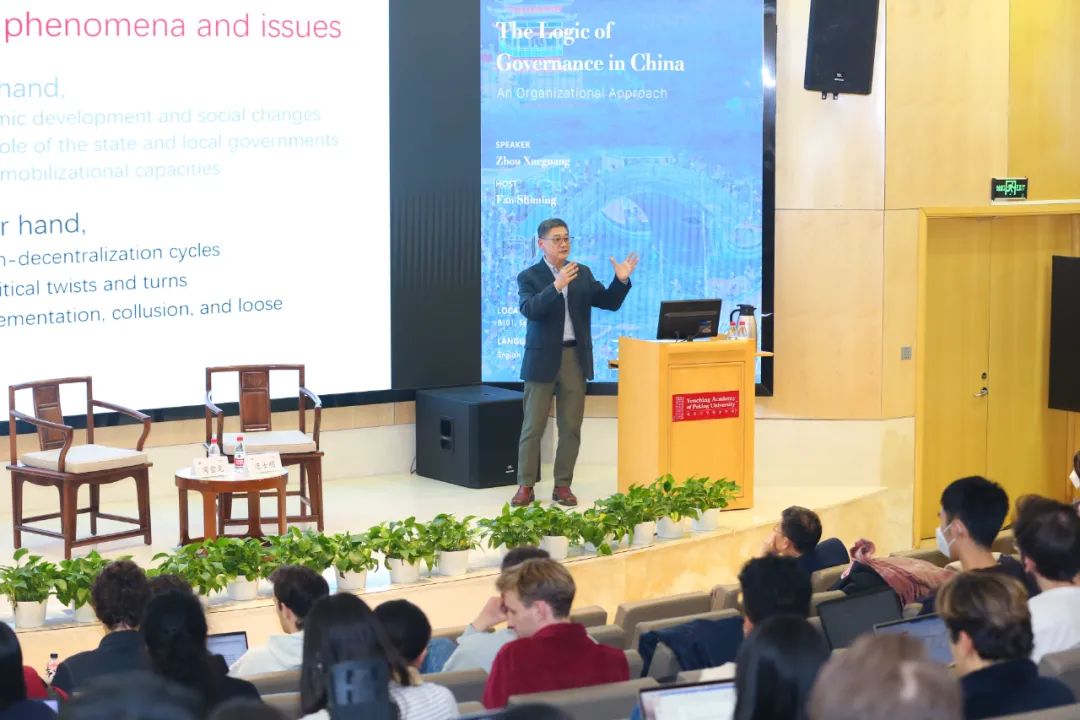
Prof. Zhou noted that the aforementioned phenomena stem from the fundamental tension between an authoritative system and effective governance. In an authoritative system, powers and resources tend to be centralized, weakening the governance capacity and effectiveness of local governments. Conversely, effective governance may undermine uniform policies as it accentuates local governments’ authority. Coping mechanisms are thus generated within the framework of state governance to relieve this tension.
Firstly, local governments’ implementation of uniform policies from the central government should allow for flexible adaptation. To underscore the central government's authority, when local governments must recognize and implement top-level design and policies, the central government should allow or acquiesce flexible adaptations and adjustments by local governments on various levels vis-à-vis local conditions to achieve substantive effects.
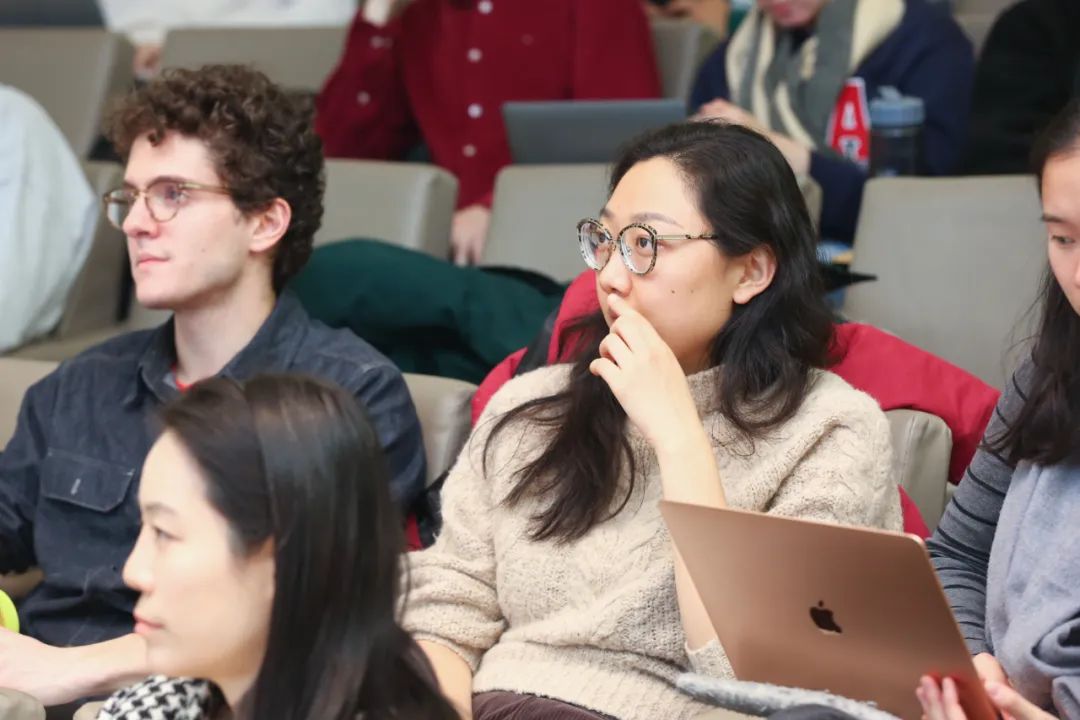
Secondly, formal and informal institutions are interdependent and interconnected. While formal institutions are firm and stable, informal institutions, such as the propriety-based hierarchical orders, offer flexibility in enforcement during implementation.
Thirdly, the ritualization of official ideology is another response mechanism to the tension mentioned above. Given the diverse values present in modern Chinese society post-reform and opening-up, no official ideology, whether Marxist dialectical materialism or traditional Confucian culture, can play an exclusive role. Thus, political education, once an ideological weapon, takes on a new form of ritualistic activities aimed at centralizing authority.
Fourthly, the campaign-style governance mechanism is pivotal in addressing the tension between centralized authority and effective governance to rectify bureaucratic failures and deviations in regional or local governance.
These response mechanisms have yielded unexpected consequences. State governance in China has long experienced a dynamic interplay of the centralization and decentralization of powers and formal and informal institutions, leading to a fragile equilibrium and political cycles. Meanwhile, state governance is undermined by bureaucratic organizations.
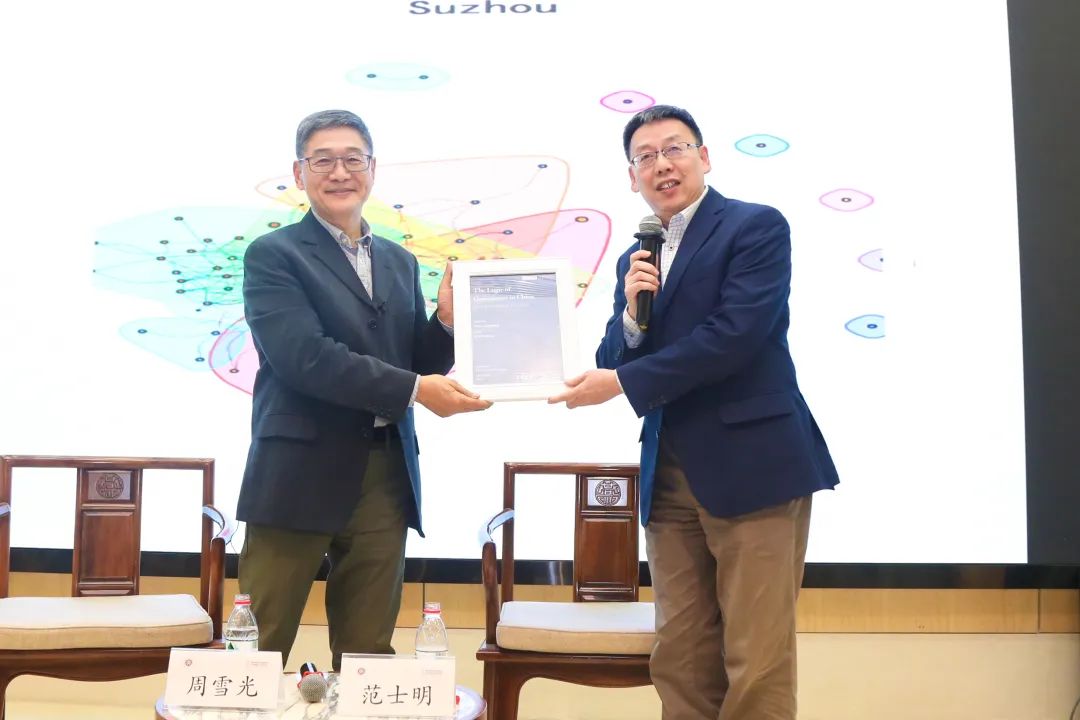
Q&A’s
Q: Is the relationship between the central authority and local governments in China a characteristic phenomenon in modern China or a historical one?
A: We can see enormous connections between bureaucratic systems in modern and ancient China. Many differentiated organizational models can be traced back to ancient China. Despite significant differences, there is continuity in the organizational structures and tensions inherent in the systems.
Q: Cengceng jiama seems to result in cengceng dijian, as many documents have argued. How do you view the relationship between the two? And how are they integrated into China’s state governance?
A: You’re talking about the relationship between formal and informal institutions. Cengceng jiama refers to the downward acceleration of implementation pressures to ensure local-level execution. On the otherhand, Cengceng dijian refers to the reduction of practical work. The phenomenon of undertaking formalities for the sake of formality emerges when local governments find some downward tasks impractical. This reflects a gap between formal regulations and rules and informal practice.
